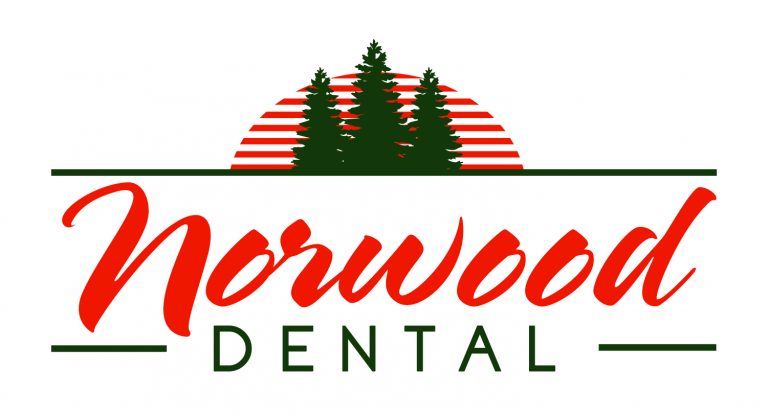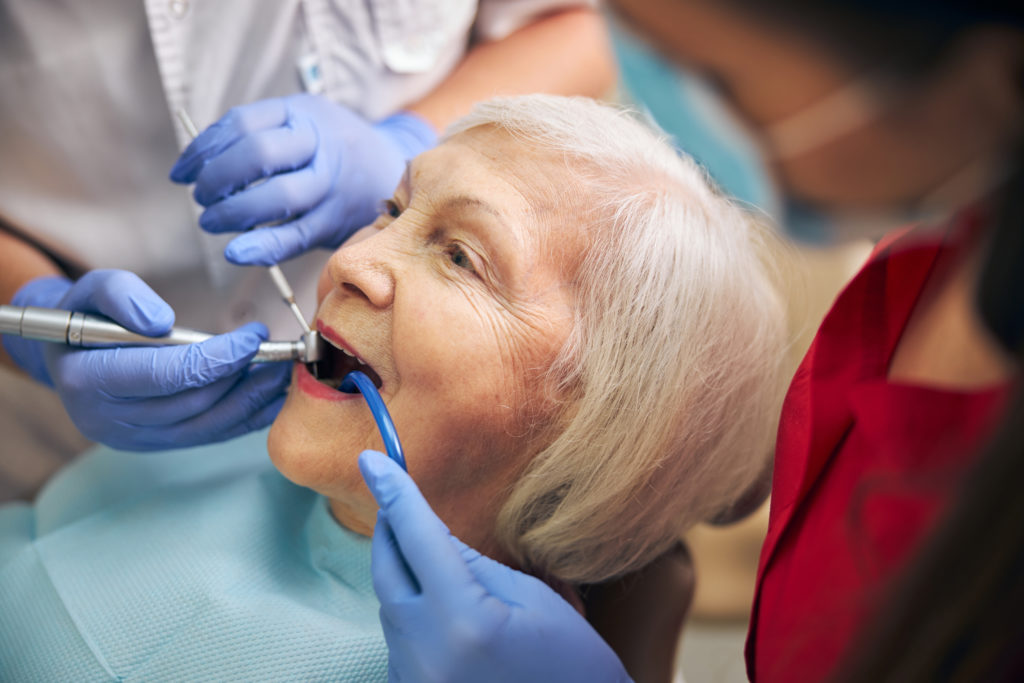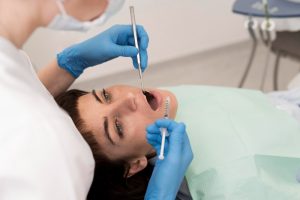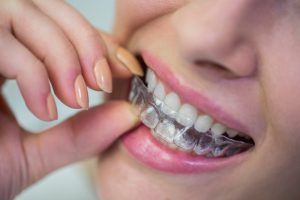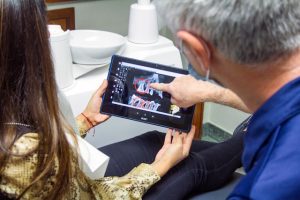What Are Dental Emergencies?
The American Dental Association defines dental emergencies as “situations that may be potentially life-threatening and require immediate treatment.” This involves alleviating severe pain, controlling bleeding, treating any infection or inflammation.
Various conditions are classified as dental emergencies. In this post, we will talk about common emergencies and how to deal with them.
How To Know When You Need An Emergency Dentist?
A study by the American Family Physician revealed that about 22 % of people experience dental issues in the form of pain in 6 months. This goes to show that dental emergencies are pretty common than one would like to think.
However, not all situations can be categorized as a dental emergency. Ask yourselves the following questions if you want to assess whether your issue is one.
Am I In Severe Pain?
Pain that doesn’t subside is a sign of a dental emergency.
Have I Lost A Tooth?
Getting treatment as soon as possible is imperative in cases of tooth loss. Waste no time – call your emergency dentist!
Are My Teeth Loose?
Adult teeth are supposed to be firm and rigid. If you’re experiencing loose teeth, with or without pain, it’s time to give your emergency dentist a ring.
Is There Swelling?
If you notice any signs of inflammation – intra-oral or extra-oral – head to the dentist’s office. Inflammation can be linked to life-threatening abscesses. If you’ve been in an accident or have experienced trauma, it could also be a fracture. Call your emergency dentist.
Is There Bleeding?
Uncontrollable bleeding should never be ignored. It usually means that it is something serious and requires professional intervention.
What To Do In Case Of Dental Emergencies?
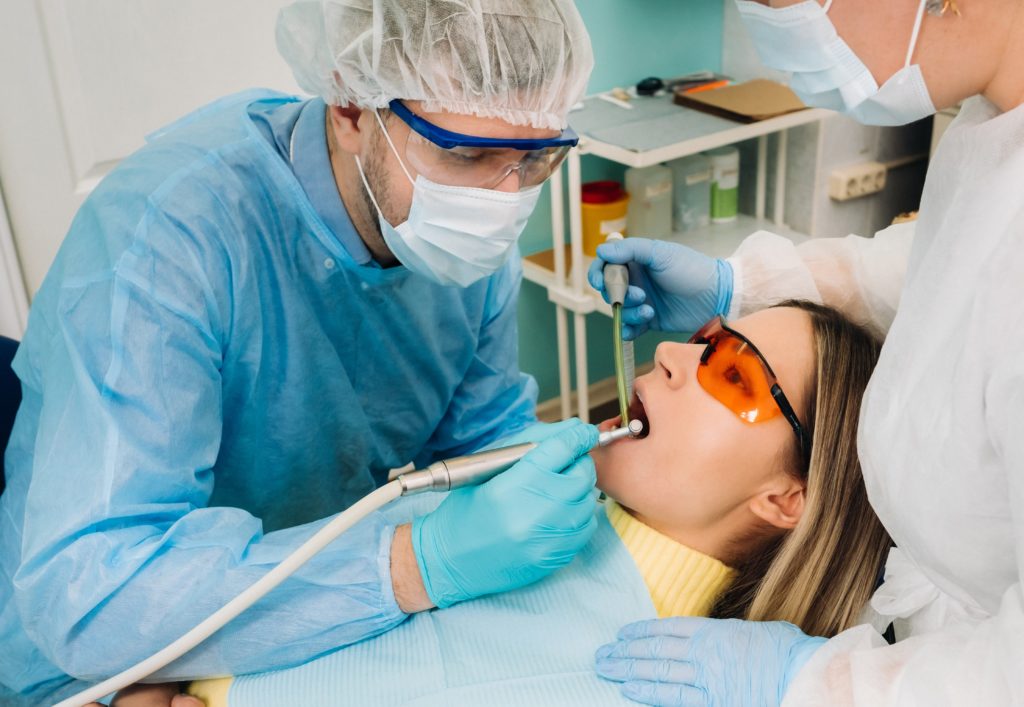
Below, we’re going to list out all the common emergencies and how to handle them in case you experience one.
Severe Toothache Or Pain
Pain is always a sign that something is wrong with your body. It should never be ignored.
If you’ve experienced a toothache, you know how awful it can be. If your tooth won’t stop hurting, try taking a painkiller. If that doesn’t help, then it’s a sign that you need to visit an emergency dentist.
You can also apply the same to an intra-oral or extra-oral pain you might be having. If it doesn’t subside, call your dentist.
You can also do a cold compress and salt-water rinses to relieve some of the discomforts till your dentist can see you.
Inflammation or Bleeding
Abnormal swelling and uncontrollable bleeding are both signs of something severely wrong. It could be accompanied with or without pain.
Both these situations can arise due to various reasons –
- Infections
- Progressed gum disease
- Trauma to the tooth
- Trauma to the face can be indicative of fractures
- Abscesses
In case of swelling, perform cold compresses over the inflamed site. Additionally, salt-water rinses can help alleviate the discomfort associated with swelling inside the mouth.
For uncontrolled bleeding, take a fresh towel or gauze and hold it over the bleeding area with firm pressure. In case you can’t get in touch with a dentist, head to the nearest emergency room. They’ll provide first-aid and get you in contact with an emergency dentist to assess your condition.
Tooth Loss
Maybe you’ve hurt yourself during a sport, met with an accident, or your tooth fell out spontaneously. Either way, waste no time in this scenario.
Pick up the tooth by holding the crown. Do not, under any circumstance, touch the root. Run it under running water without scrubbing it. If you can, place the tooth gently back into the socket and hold it in place by biting down on a clean gauze. Dial your emergency dentist.
If you are unable to place the tooth back, dunk it into a glass of milk or clean water. If there is bleeding from the socket, apply firm pressure till you get to the dental office.
Loose Tooth
Similar to what you would do with a knocked-out tooth, you do with a loose tooth. Hold it in place with the help of a paper towel or clean gauze. If you feel like your tooth has rotated within its socket, don’t try to reposition it. Leave that to the expert.
Call your emergency dentist and get to the office at the earliest.
Broken or Dislodged Dental Appliances
While issues with your dental appliances aren’t exactly life-threatening emergencies, they can be particularly annoying. Some of the common issues you can face with your appliances are –
- Dislodged dental crown or bridge
- Chipped bonding work
- Broken orthodontic wires
- Broken or warped dentures
All of these situations can hamper your day-to-day functioning. Call your emergency dentist and schedule an appointment at the earliest convenience.
How Does Emergency Dentistry Work?
Most dentists usually have chalked-out timings to cater to dental emergencies. However, if you are a regular at a dental office, the in-house dentist might also see you after-hours. Several professionals even have separate numbers to contact in case of a dental emergency.
Here’s what you can expect at the dentist’s office during emergency treatment –
Examination
Your dentist will examine your oral cavity and the face to look for the cause of the issue. They might even ask to do a series of X-rays to determine the exact situation.
Pain Relief
If you are experiencing severe pain, your dentist will try to eliminate the root cause and alleviate the pain. Sometimes, they might administer injections to help deal with the pain since they work faster than oral medication.
If the cause of pain is an infection, the dentist might also inject and further prescribe antibiotics to clear it.
Temporary Relief or Fixing The Issue
Depending on the situation, your dentist might choose to either fix the issue at hand or provide some sort of temporary relief and recall you at a later time.
Not all issues can be taken care of in a single seating and you could be recalled for another visit to complete the procedure.
The dental team at Norwood Dental is more than happy to assist you during your time of need. If you’re in an emergency, give us a call at (952) 467-3518. You can also fill this form and we’ll get in touch ASAP.
